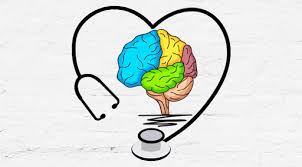Advertisements
The fast pace of modern life has increasingly imposed challenges on our mental health. Between professional, family and social responsibilities, maintaining emotional balance has become an urgent need. This issue is essential not only to ensure individual well-being, but also to improve the quality of life as a whole. In this context, exploring practical ways to take care of mental health in everyday life can be a game changer for those seeking serenity and emotional stability.
Understanding emotional balance is more than just dealing with daily stress. It’s an ongoing journey that involves recognizing and managing emotions in a healthy way. This content delves into the nuances of the topic, offering valuable insights and practical tips that can be easily incorporated into your daily routine. By adopting small changes in habits and attitudes, you can cultivate a more harmonious and resilient internal environment.
Advertisements
The strategies discussed include mindfulness practices, the importance of establishing healthy boundaries, and the value of self-care. The connection between body and mind will also be explored, highlighting how physical exercise and a balanced diet can directly influence emotional state. The holistic approach seeks to integrate body and mind, promoting sustained balance.
Mental health is an essential pillar for a full and satisfying life. Investing in emotional balance is not only a wise choice, but a necessity to face daily challenges with serenity and confidence. As you read on, discover how small actions can bring about great transformations, promoting a calmer and more balanced life. 🌿
Advertisements

Understanding Emotional Balance
Maintaining emotional balance is essential for mental health and overall well-being. Understanding what it means to be emotionally balanced is the first step to taking care of yourself. This involves recognizing your emotions, understanding them, and managing them in a healthy way. Society often pressures us to hide our feelings or to appear to be fine all the time, but it’s important to remember that all emotions are valid and have a purpose. 💡
Emotional balance is not about being happy all the time, but rather the ability to deal with life’s difficulties and joys with resilience. When we are emotionally balanced, we can face challenges more effectively and enjoy the good times more intensely. Allowing yourself to feel, without judgment, is essential to this process. By acknowledging our emotions, we open space for healing and personal growth.
Identifying Emotional Challenges
To achieve emotional balance, it’s crucial to identify the challenges you face in your daily life. Stress, anxiety, and sadness are common feelings that can affect your emotional well-being. Recognizing these feelings is the first step to addressing them. Instead of beating yourself up for feeling them, try to understand their causes. Ask yourself: What is causing this stress or anxiety? Is there anything I can do to change it?
Self-awareness is a powerful tool in this process. By better understanding your emotions, you can make more informed decisions about how to care for yourself. Consider keeping an emotional journal, recording your feelings and thoughts throughout the day. This can help you identify emotional patterns and triggers, allowing you to actively work on improving your emotional balance.
Daily Practices for Emotional Balance
Incorporating daily practices into your routine can significantly help with emotional balance. Setting aside time to take care of yourself is not just a luxury, but a necessity. Consider the following practices:
Recommended Articles
- Meditation: Take a few minutes each day to meditate. This can help calm your mind and reduce stress.
- Physical Exercises: Physical activity releases endorphins, which can improve mood and reduce anxiety.
- Healthy Eating: A balanced diet can positively influence your mental state.
- Time in Nature: Spending time outdoors can be invigorating and help clear your mind.
- Gratitude Journal: Writing down things you are grateful for can shift your focus to the positive.
Experiment with different activities and find what works best for you. The important thing is to maintain a regular practice, even if it’s just for a few minutes a day. Small steps can have a big impact over time. 🧘♂️
The Importance of Social Support
Never underestimate the power of social support for emotional balance. Having a network of friends, family, or support groups can provide comfort and perspective during difficult times. Sharing your feelings with someone you trust can be a powerful way to ease the emotional burden. Sometimes, simply talking about your challenges can bring clarity and relief.
Be proactive in seeking out meaningful connections. This could include joining a group with shared interests, participating in community activities, or simply spending more time with loved ones. Additionally, offering support to others can also be an effective way to strengthen your own emotions. Sharing experiences and empathizing with one another creates bonds that promote emotional well-being for everyone involved.
Cultivating Self-Compassion
Self-compassion is an essential practice for achieving emotional balance. We are often our own harshest critics, which can lead to feelings of guilt and low self-esteem. Learning to treat yourself with kindness and understanding can transform your emotional health. Remember that to err is human, and that growth comes through experiences, whether positive or negative.
Start by recognizing your own needs and limits. Take time to reflect on how you talk to yourself. Replace critical thoughts with positive, compassionate affirmations. When faced with a challenge, ask yourself, “How would I treat a friend who was going through this?” This approach can help create an internal environment of support and acceptance.
Developing Emotional Resilience
Emotional resilience is the ability to bounce back from adversity and continue moving forward. Developing this skill can improve your quality of life and help you maintain emotional balance during difficult times. One way to develop resilience is to reevaluate how you perceive and react to challenging situations. Instead of viewing difficulties as insurmountable obstacles, try to view them as opportunities for learning and growth.
Practicing gratitude, keeping an emotional journal, and setting realistic goals are all ways to build resilience. In addition, taking care of your body through healthy eating and regular exercise also contributes to a resilient mind. Remember, resilience is not an innate skill, but a practice that can be cultivated over time. 🌱
Seeking Professional Help
Last but not least, recognizing when it’s time to seek professional help is an important step in taking care of your mental health. Sometimes, despite our best efforts, we need additional support. Psychologists, psychiatrists, and therapists are available to help you explore your emotions and develop effective strategies for coping.
There’s no shame in seeking help; in fact, it’s an act of courage and self-care. If you’re feeling overwhelmed, hopeless, or if your emotions are negatively impacting your daily life, consider reaching out to a professional. They can offer valuable support and guidance to help you find your way back to emotional balance. 💙
Conclusion
In short, achieving emotional balance is essential for a healthy and fulfilling life. In our daily lives, we are often faced with challenges that can affect our mental well-being. However, with simple and conscious practices, it is possible to cultivate mental health and promote a state of emotional balance. Firstly, regular physical activity not only benefits the body, but also relieves stress and anxiety, improving mood. In addition, meditation and mindfulness are powerful tools that help keep the mind focused on the present, reducing negative thoughts.
Another practical tip is to establish healthy boundaries in interpersonal relationships, promoting an environment of mutual respect. Furthermore, keeping a journal can be an effective way to express emotions and reflect on daily experiences. We cannot forget the importance of a balanced diet and good quality sleep, both of which are fundamental for mental health.
Finally, seeking professional support when necessary is a crucial step, as a psychologist can offer personalized strategies to deal with emotional issues. Therefore, by incorporating these practices into your daily life, you can maintain emotional balance and thus live a more harmonious and satisfying life. 🌟




